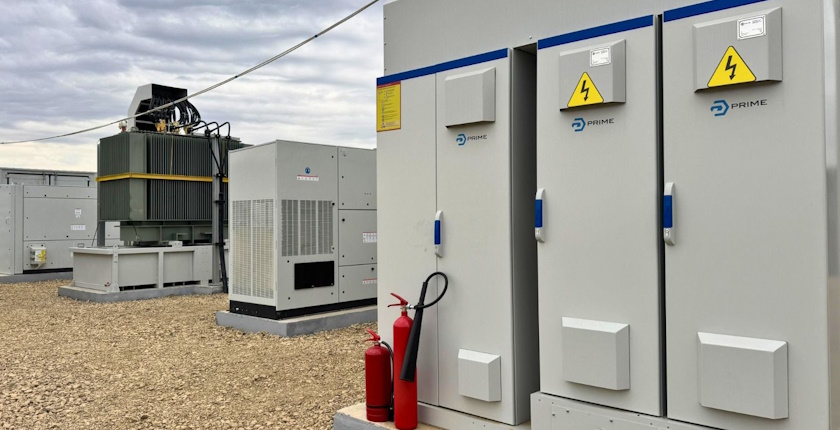Prime Batteries expanding battery storage manufacturing capacity in Romania
Prime Batteries Technology started the works on multiplying the capacity of its battery storage factory in Bucharest, despite the deteriorating prospects for its industry segment in Romania. Czechia-based Tesla Group has given up on a manufacturing facility project worth almost EUR 100 million, even with state aid approved. The government’s renegotiation of a funding package with the European Union resulted in erasing EUR 150 million in grants.
Prime Batteries Technology or PBT got a major investor on board and launched the works on the expansion of its factory in Romania. Earlier this month, the company obtained the building permit for boosting the capacity in Bucharest to 8.5 GWh per year from the current 2.5 GWh, Chief Executive Officer Vicențiu Ciobanu revealed at a conference organized by Energynomics.
Prime Batteries expects to grow its operational portfolio to 226 MWh this month. The facilities are within existing renewable electricity plants – mainly photovoltaics. The company expects to deliver another 152 MWh in the same segment and another 227.8 MWh in standalone battery energy storage systems (BESS) before the end of 2025.
The rest of the 800 MWh target for this year is due by the end of March. PBT also manufactures batteries for electric vehicles, industrial production and electricity grids.
Private equity firm T2Y steps in, confident in manufacturing investment bet
Prime Batteries has just welcomed private equity firm T2Y on board. According to the announcement, their goal is to surpass 8 GWh in annual capacity by 2030. T2Y became the second-largest shareholder, while Prime Batteries Technology’s Founder Adrian Polec controls the largest stake, Handelsblatt reported.
The company has a supply chain independent of China, T2Y’s Founder Patrick Bettscheider pointed out. He noted that PBT’s machines are Korean while the suppliers are Japanese, Korean and European.
The battery manufacturer has also agreed a partnership with Monsson for the development of projects for 1.07 GWh of storage capacity in Romania and Europe. In addition, Prime Batteries introduced a battery-as-a-service (BaaS) offer for the commercial and industrial segment.
Tesla Group backs out with major loss as EU fails to address Chinese subsidies
Launching the construction of another factory occurred at a hard time for investors in battery manufacturing in the country, but also Europe.
Tesla Group from the Czech Republic recently canceled a project in Romania estimated at almost EUR 100 million, including EUR 39.4 million in state aid. The company acknowledged that it already spent EUR 10 million before the pullout: on land in Brăila for the planned factory, technology, procurement and tenders.
Among other headwinds, Tesla Group cited the significant decline BESS equipment prices and the bankruptcy of major players
Namely, the situation worsened in June 2024 as global competition intensified, Tesla Group stressed, as quoted by Profit.ro. It cited “heavily subsidized Chinese manufacturers” together with “the lack of effective trade protection policies at the EU level,” the significant decline in prices of BESS and the bankruptcy of major players such as Northvolt in Sweden.
The Czech firm said it has become “impossible to sustain or expand battery production operations in Europe.”
Lyten, headquartered in the United States, agreed in July to take over Northvolt.
Romania folds plan to make BESS manufacturing its strategic sector
On top of it all, Romania has lost EUR 150 million in EU grants for battery production, assembly and recycling, according to a document from the Ministry of Energy that the same media outlet saw. The sum was from the National Recovery and Resilience Plan (NRRP or, in Romanian, PNRR), which the government is renegotiating with the administration in Brussels.
Two beneficiaries have requested that their funding contracts be canceled. The ministry will scrap another three, the article reads.
Notably, several contracts for hydrogen production and manufacturing facilities for solar panels have been suspended. Financial support for two cogeneration plants was reduced. Greece, Bulgaria and Romania have been breaching deadlines for reforms and procedures for EU subsidies for batteries, but also other investments essential for the energy transition.

